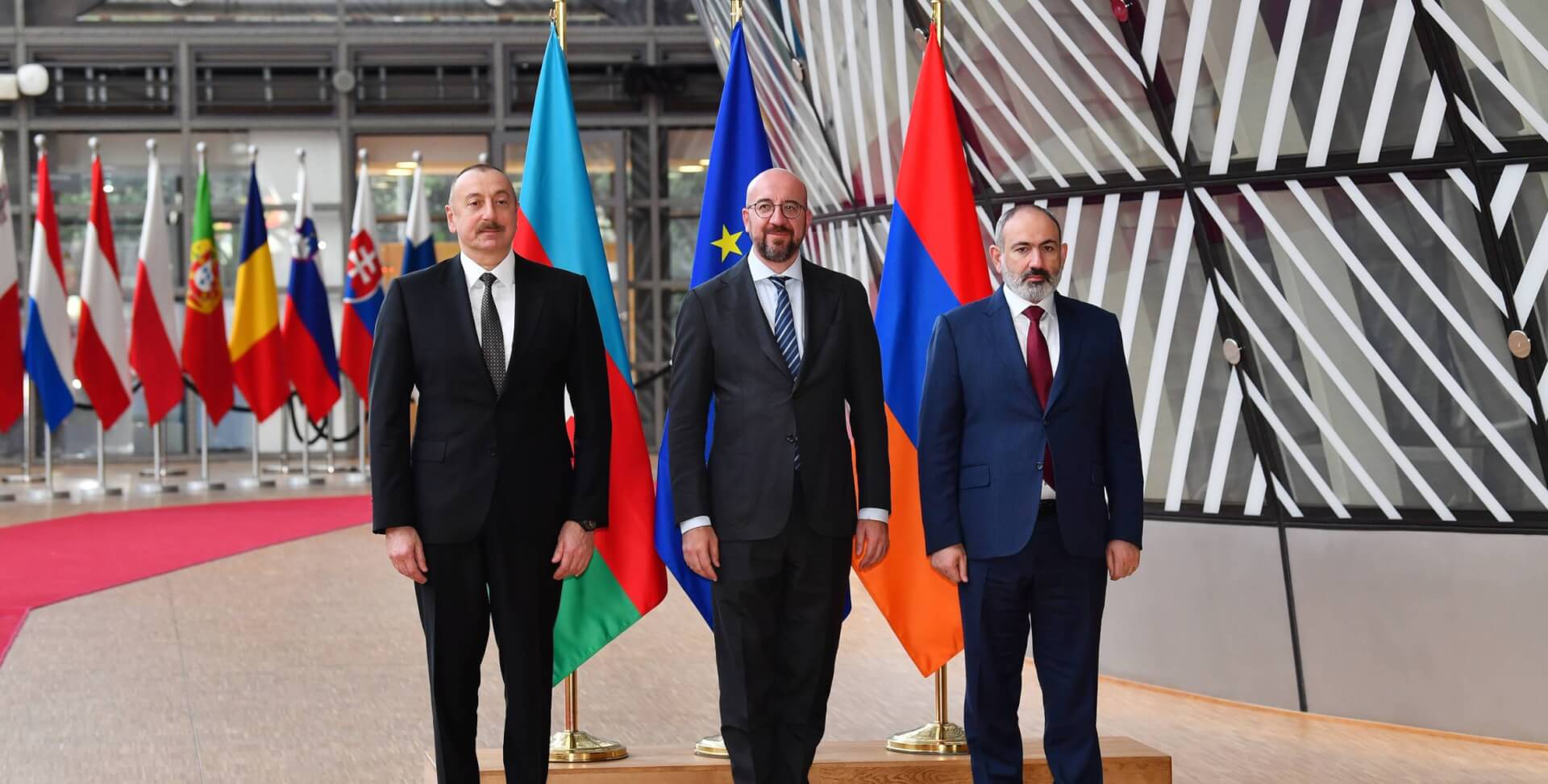The leaders of Armenia and Azerbaijan have under European Union (EU) supervision agreed to establish border commissions and further peace talks aimed at resolving the decades-long Nagorno-Karabakh dispute. However, Azerbaijan continues to demand that Armenia recognise its sovereignty over the Nagorno-Karabakh region after it captured swathes of Armenian territory during the 2020 war.
The announcement about the latest peace talks was made by European Council President Charles Michel after meeting with Azerbaijani President Ilham Aliyev and Armenian Prime Minister (PM) Nikol Pashinyan in Brussels on Sunday for the second time since April. Michel called the discussions “frank and productive” and said they discussed “the entire set of issues,” including border violations, demining, and efforts to free prisoners of war.
LIVE after the meeting with the President of the Republic of Azerbaijan Ilham Aliyev @presidentaz and the Prime Minister of the Republic of Armenia @NikolPashinyan https://t.co/BGz1lsKBMA
— Charles Michel (@eucopresident) May 22, 2022
Both leaders gave the green light for the establishment of border commissions for their respective sides and indicated that the first meeting will take place soon. “It will address all questions related to the delimitation of the border and how best to ensure a stable situation,” Michel emphasised.
The decision to fast-track border commission talks follows recent attempts by both Armenian and Azerbaijani forces to either infiltrate the border and violate the ceasefire agreements reached in 2020. Both sides have accused each other of violating the truce and provoking tensions.
Productive third trilateral meeting with @azpresident and @NikolPashinyan in Brussels
— Charles Michel (@eucopresident) May 22, 2022
Reviewed entire agenda, including connectivity, border & humanitarian issues & work towards the future peace treaty.
Tangible progress made.
Next meeting by August.https://t.co/GuagHZzyIS
Moreover, Aliyev and Pashinyan “agreed to advance discussions on the future peace treaty governing inter-state relations between Armenia and Azerbaijan.” Michel said that delegations led by the foreign ministers of Azerbaijan and Armenia “will take forward this process in the coming weeks.”
“In addition to this track, I also stressed to both leaders that it was necessary that the rights and security of the ethnic Armenian population in Karabakh be addressed,” he added.
The trilateral meeting of Aliyev, Pashinyan, and Charles Michel has now started. Hard to read the facial expressions and body language here but hope there will be something positive and tangible coming out of it later. #Armenia #Azerbaijan #Brussels pic.twitter.com/ain94t4dyL
— Onnik J. Krikorian (@onewmphoto) May 22, 2022
The leaders also “agreed on the need to proceed with unblocking the transport links” in the South Caucasus region, which were destroyed during the 44-day war in 2020. After fresh violence erupted in September and November, both sides also sealed their borders and blocked road and rail networks, which remain closed even today.
“They agreed on the principles governing transit between western Azerbaijan and Nakhichevan, and between different parts of Armenia via Azerbaijan, as well as international transport through communications infrastructure of both countries,” Michel said in this regard.
So, totally different Charles Michel compared to the previous two meeting between Aliyev and Pashinyan. The format was different too. It was way more serious. Those comments about meetings "in the coming days" are hopefully right, if only on the border commission. Here's hoping.
— Onnik J. Krikorian (@onewmphoto) May 22, 2022
Michel also announced that Pashinyan and Aliyev “agreed to remain in close contact” and meet in the same format by July or August.
Moreover, during a one-on-one meeting with Michel, President Aliyev stressed the importance of Armenia accepting his five-point list of requirements to normalise relations, which includes the recognition of Azerbaijan’s sovereignty over Nagorno-Karabakh.
While Pashinyan has stated that the proposal is acceptable to Armenia in principle, the PM’s remarks have stirred a backlash in Armenia. Guided by the opposition, thousands of Armenians have been protesting for days across the country demanding Pashinyan’s resignation.
Domestic politics in Armenia have been in turmoil following its loss in the 2020 war. The conflict forced Armenia to cede parts of Nagorno-Karabakh, which had been under its control for decades, to Azerbaijan. The loss led to widespread protests against Pashinyan’s government, which was blamed for the defeat to Azerbaijan.
Armenia and Azerbaijan have been engaged in constant conflict over the breakaway region of Nagorno-Karabakh since the fall of the Soviet Union. In September 2020, they fought a devastating war that led to the worst clashes in decades, killing thousands and displacing more than 100,000 people. The fighting ended in November last year after Armenia and Azerbaijan signed a Russian-brokered ceasefire deal, which stated that Azerbaijan would remain in control of areas it recaptured from Armenia and that Russian troops would be deployed in the region to ensure that calm prevails.

